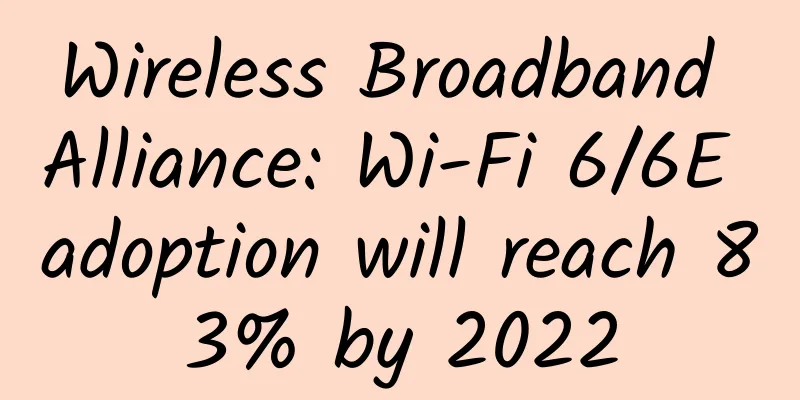Can the heavy fine on Alibaba serve as a wake-up call for the Internet giant?

|
The State Administration for Market Regulation has imposed a fine of 18.228 billion yuan on Alibaba Group in accordance with the law, because Alibaba Group is suspected of abusing its dominant market position. This is the largest fine since China implemented the Anti-Monopoly Law, and the industry was in an uproar. Since the Anti-Monopoly Law of the People's Republic of China came into effect on August 1, 2008, it is not uncommon for fines of over 10 billion yuan. Alibaba was heavily fined. First, it shows that the country is becoming more stringent in anti-monopoly administrative law enforcement. No matter what company violates the law, it will be severely punished; second, it will have a significant impact on the future development of Internet platforms, indicating that China's Internet platforms can no longer do whatever they want, infringe on the legitimate rights and interests of merchants on the platform, and harm the interests of consumers.
The heavy fine imposed on Alibaba this time is the country's promotion of the standardized, healthy and sustainable development of the platform economy from the anti-monopoly level. The People's Daily commented that this punishment is "a standardization and rectification of corporate development, a clean-up and purification of the industry environment, and a powerful maintenance of the market order of fair competition". This time the board hit Alibaba's buttocks. First, its implementation of the "two-choice-one" behavior excludes and restricts competition in the online retail platform service market in China, hinders the free flow of goods, services and resource elements, affects the innovative development of the platform economy, infringes on the legitimate rights and interests of merchants on the platform, and harms the interests of consumers. It should be punished; second, it is killing the chicken to scare the monkey, to show other Internet companies. Anti-monopoly is not aimed at Alibaba alone. On November 6 last year, the State Administration for Market Regulation held an administrative guidance meeting on regulating the online economic order, involving as many as 27 companies such as Meituan, JD.com, and Alibaba; on March 3, the State Administration for Market Regulation imposed administrative penalties on five community group purchases for unfair pricing behavior, and Duoduo Maicai was fined 1.5 million yuan. Indeed, it is time to strictly regulate China's Internet companies, draw red lines and set rules. The State Administration for Market Regulation has raised the sword of anti-monopoly to deter these Internet giants who do not follow the rules and cross the line at will, which is a good reference for other industry authorities. These industry authorities should also raise the "hammer" of the law to severely hit these Internet giants who do not follow the rules and cross the line at will. The Internet has been developing in China for more than 20 years. In recent years, with the development of mobile Internet, it has reached a peak and penetrated into all aspects of social life. Many giants have emerged, such as Alibaba, Tencent, Baidu, Toutiao, and Meituan. Internet services have promoted social development, injected vitality into the economy, and facilitated people's lives and work. In today's society, people can no longer live without the Internet. Relying on China's 1.4 billion people and relaxed regulatory policies, the country completed its original accumulation. Driven by capital, Internet giants have deployed various industries, including instant messaging, e-commerce, payment, travel, entertainment and other fields, and have penetrated almost everywhere. They have grown wildly, accumulated a large number of users, and gradually formed several major platforms. However, domestic Internet innovation is insufficient, and the giants are all focused on putting new wine in old bottles. They use the three axes of burning money for subsidies, harvesting traffic, and lending in disguise, and package all the corners with the Internet, and finally go public to reap the benefits. It can be said that China's Internet giants lack the due respect and honesty for Chinese netizens, and even less awe for the Chinese market. The Internet + craze in the past two years has created myths for some Internet companies and amplified the hostility and arrogance of some Internet companies. These companies are arrogant. Take APP applications as an example. These companies arbitrarily and even deliberately ask for user privacy data. Although the Ministry of Industry and Information Technology has repeatedly asked relevant companies to rectify and even taken punitive measures such as delisting, the results are minimal. Some Internet giants have repeatedly delayed and even refused to rectify on the grounds of a large user base; some Internet giants even said that domestic users are willing to trade privacy for convenience, and criticized the national financial supervision as "pawnshop thinking." Alibaba Group was fined for abusing its dominant market position. The "hammer" of the State Administration for Market Regulation was a good move. Hopefully, it will wake up Alibaba and alert more Internet companies. China's economy is shifting from a high-speed growth stage to a high-quality development stage. The era of barbaric growth is over. Therefore, Internet companies should change their development mode and focus more on technological innovation and social responsibility. Only in this way can they benefit social development and their own development. |
Recommend
Shanghai Pudong issued the country's first "blockchain construction standard" in the government sector
Recently, the Pudong New Area's "Governm...
RackNerd: Cheap VPS starting at $10 per year, multiple data centers in San Jose/Los Angeles/Seattle/New York/Dallas, etc.
This weekend, we will share the cheap VPS package...
5G Imagination in the Internet of Vehicles Makes Transportation Smarter
[[351620]] 5G is one of the Internet of Things co...
The China-South Korea match at the 40,000-person He Long Sports Center revealed the secrets behind the "Wireless Bee Madness"
On March 23, the Chinese national football team w...
Some thoughts on the information construction of the financial industry
The rapid development of information technology h...
【WOT2018】Recommended search venue reveals the secrets and discusses how intelligent search can improve business value
[51CTO.com original article] In 2018, artificial ...
Fifteen best practices for a successful data center migration
Data center migrations are often complex and risk...
Hengchuang Technology's May Day Cloud Promotion is as low as 85% off, and the annual payment for Hong Kong cloud servers starts from 317 yuan
Hengchuang Technology has released a promotion pl...
Ether color light empowers the implementation of smart campus construction standards
Starting with the "optical fiber replacing c...
The secrets behind the IoT strategy of Internet giants at the end of 2017
2017 is coming to an end. There is no doubt that ...
Smart homes need smarter Wi-Fi
Today's homes feature an increasing number of...
Analysis of the reasons for the slowdown of 4G network speed
Although 5G has only been implemented for a year,...
How to decide if Wi-Fi 6 is right for you?
There’s a lot of hype surrounding the next Wi-Fi ...
China's 6G is starting to speed up, and South Korea is investing 1.24 billion in 6G. What are the advantages of 6G?
According to the China Internet Development Repor...
Someone finally explains the true value of 5G
Since 2019, the pace of 5G commercialization has ...









